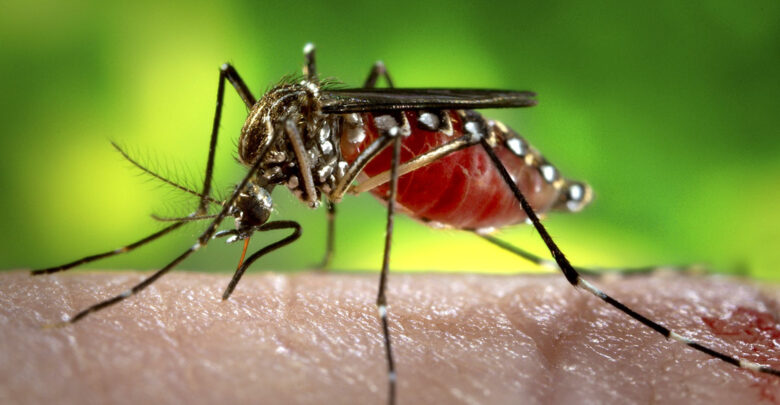

HYDERABAD, India — A vaccine to attack the Chikungunya virus is in the works, with Phase II and III trials being conducted in Costa Rica, according to the International Vaccine Institute and Indian biotech company Bharat Biotech.
The news comes days after another vaccine candidate for the tropical disease developed by French biotechnology company Valneva showed early signs of promise.
The Chikungunya virus is responsible for Chikungunya infections. It is transmitted after an infected mosquito bites a person and presents itself through joint pain and fever. The disease was historically endemic in the tropical climates of Africa and Asia. However, over the last two decades, Europe and The Americas have had outbreaks of Chikungunya.
No vaccine or specific drug so far has been approved for use against the virus.
The International Vaccine Institute is leading the Global Chikungunya vaccine Clinical Development Program (GCCDP) consortium in partnership with India-based drugmaker Bharat Biotech and funded by the Coalition for Epidemic Preparedness Innovations (CEPI) with support from the Ind-CEPI mission of the Department of Biotechnology, India.
“The International Vaccine Institute is advancing clinical development of “BBV87″ through a Phase II/III randomized, controlled trial to evaluate the safety and immunogenicity of a two-dose regimen of BBV87 Chikungunya vaccine in healthy adults at nine clinical trial sites across five countries with endemic Chikungunya,” said a joint statement by the International Vaccine Institute and Bharat Biotech International Limited
Bharat Biotech’s BBV87 vaccine is an inactivated whole virion vaccine based on a strain derived from an East, Central, South African (ECSA) genotype. The vaccine has completed standard pre-clinical studies, and an optimum immune response was elicited by the adjuvanted vaccine in phase I clinical trials in India.
Inactivated virions technology has a safety profile that potentially makes this vaccine accessible to special populations, such as the immunocompromised and pregnant women, that some other technologies cannot reach.
In addition to the trial at Clinica San Agustin in Costa Rica, trials are expected to begin in Panama and Colombia by September 2021 and in Thailand and Guatemala soon after.
“We are thrilled to announce that the first participant was dosed with our Chikungunya vaccine candidate in a multi-country Phase II/III study,” said Sushant Sahastrabuddhe, Acting Associate Director-General at the United Nations’ International Vaccine Institute and Principal Investigator of the Global Chikungunya vaccine Clinical Development Program.
“The start of this trial in Costa Rica is a significant milestone in the effort to make available a safe, effective, and affordable Chikungunya vaccine for the one billion people around the world at risk of Chikungunya virus infection.”
“We are grateful to our partner Bharat Biotech, our clinical trial site collaborators and partners, and CEPI for this collective effort that will generate crucial safety and immunogenicity data in regions most affected by Chikungunya.”
The Global Chikungunya vaccine Clinical Development Program seeks to develop and manufacture an affordable Chikungunya vaccine with the aim of achieving the World Health Organization’s prequalification to enable its distribution in low- and middle-income countries, consistent with the Coalition for Epidemic Preparedness Innovations’ core commitment to equitable access, affordability, and sustainability.
If needed, the Coalition for Epidemic Preparedness Innovations or Bharat Biotech may propose a third-party for manufacturing of a stockpile of the investigational product to be used for further clinical trials in outbreak conditions to advance vaccine development or pursuant to an emergency use authorization in emergency situations based on national or international guidance (such as by the World Health Organization).
“Epidemic preparedness is a vital step in public health care,” said Krishna Ella, Chairman and Managing Director of Bharat Biotech. “Bharat Biotech’s vaccine candidate is an ingenious, well-researched vaccine, and we thank the first volunteer from Costa Rica for participating in this study.
“The multi-country scale human trial has begun an important trial phase in furthering the evaluation of safety and immunogenicity. As a partner, we are committed towards the effort to realize a safe, efficacious vaccine that can help reduce Chikungunya disease burden the world over.”
Chikungunya is a severe and devitalizing disease, according to Renu Swarup, Secretary, Department of Biotechnology and Chairperson, Biotechnology Industry Research Assistance Council.
“Taking into cognizance the need to develop an effective vaccine for chikungunya, the Department of Biotechnology, Government of India has provided financial support under the Ind-CEPI Mission, to Bharat Biotech for the Global Chikungunya Vaccine Clinical Development Program,” she said.
“It is encouraging to witness the commencement of Phase II/III study of BBV87 in Costa Rica. This milestone is a first step towards developing a promising vaccine candidate against Chikungunya, an exhausting disease.”
The Coalition for Epidemic Preparedness Innovations had first partnered with the International Vaccine Institute and Bharat Biotech International Limited in June 2020, providing up to $14.1 million for vaccine manufacturing and clinical development of the BBV87 vaccine candidate.
The funding is supported by the European Union’s (EU’s) Horizon 2020 programmer through an existing framework partnership agreement with CEPI. The consortium was also supported with a grant of up to $2 million from the Indian Government’s Ind-CEPI initiative to fund the set-up of Good Manufacturing Practices facilities for the vaccine in India and subsequent manufacture of clinical trial materials.
(With inputs from ANI)
Edited by Amrita Das and Krishna Kakani
The post Consortium Led By International Vaccine Institute Says Chikungunya Vaccine In The Works appeared first on Zenger News.



